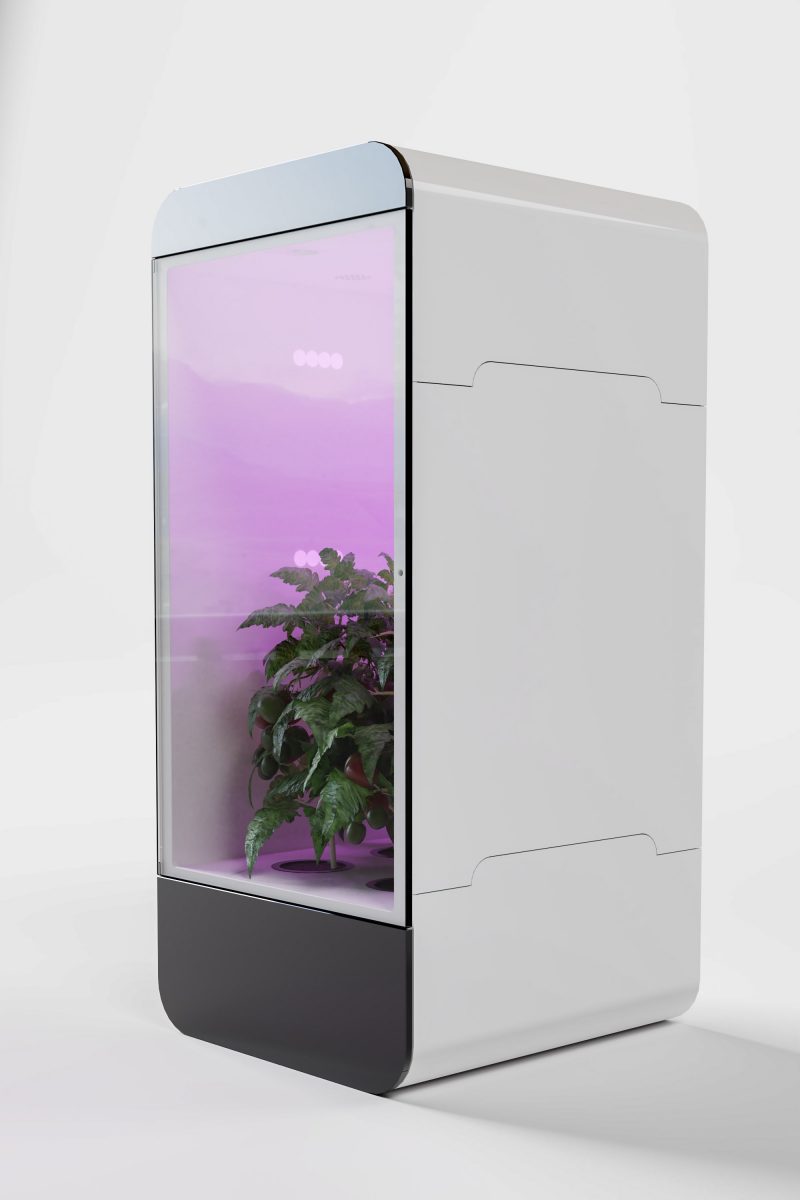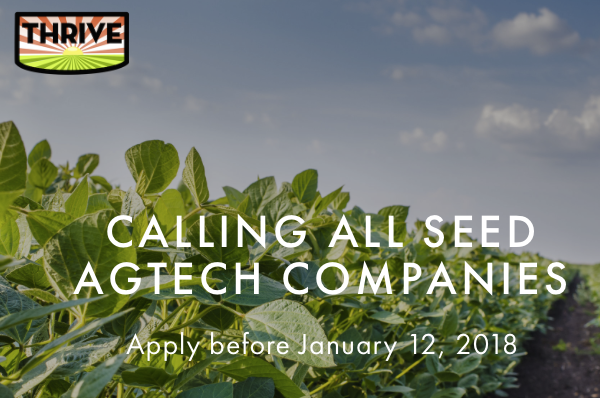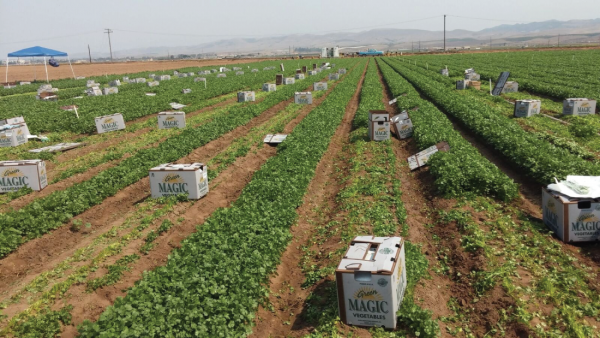Companies
Food Autonomy For Santa Cruz — The Aeroasis Mission

By Thomas Wollenberger
CEO & Founder, Aeroasis
Special to Santa Cruz Tech Beat
May 14, 2019 — Santa Cruz, CA
(Photo: Oasis has two plant growing configurations: vertical and single level. This is an example of the single level configuration, used for bigger crops. Contributed)
Santa Cruz is the ideal place for a young AgTech company like Aeroasis to grow and thrive, and the community here seems to really reflect a demand for culinary grade produce.
Having moved here just a year ago, I often find myself blown away by the atmosphere of Santa Cruz – from the diverse culinary scene to its abundance of culture and local pride. I came here from Florida with no connections in town and no prior visits ready for anything, and experienced a stark difference in the way people think and care about their food. Santa Cruz is the ideal place for a young AgTech company like Aeroasis to grow and thrive, and the community here seems to really reflect a demand for culinary grade produce. With our close proximity to Salinas and San Francisco, and the long standing history of innovation in agriculture at places like Cabrillo College, Santa Cruz and fresh food seem to go hand-in-hand.
Core mission: accelerate the transition toward resilient urban food systems
Aeroasis is excited to represent Santa Cruz in our own way. As a company, our core mission is to accelerate the transition toward resilient urban food systems. The challenge of feeding a community with locally grown foods is a big one, and the movement toward a hyper local food system will take a long time. We utilize cutting edge hydroponic and automation technologies to prove these concepts at the hyper local level and begin the transition in that direction, starting with in-home growing systems that automate the process of food production for personal consumption. As Aeroasis grows, we intend to build much more than just a personal gardening device for homes and restaurants.
So what does a resilient food system look like?
So what does a resilient food system look like? To me, it means a food system which largely takes care of itself. A system which involves direct participation by the community it serves, and which empowers that community to have more control over their nutritional intake forever. I see a time in the very near future where most homes have a relatively inexpensive and automated smart garden or smart farm, which partially feeds that home throughout the year, paying for itself in harvest value in a year or two at most.
Oasis: 4 years of iterations and experiments
Our flagship smart garden Oasis is step one. Whether you are a student at UCSC with a tiny shared living space, a homeowner looking to waste less water and time on your garden, or a chef in town with an innovative test kitchen in your restaurant, Oasis is the perfect form factor to grow compact crops of almost any kind, 365 days a year. I find one of the more exciting applications to be the cultivation of microgreens. Oasis grows anywhere from 2-3 pounds of microgreens every 8 days, which is enough caloric mass to provide substantial nutrition for a person. Most microgreens tend to be rich in potassium, iron, zinc and magnesium, and have up to 8 times more concentrated nutritional mass than their mature forms.
Designing and developing Oasis has taken 4 years of iterations and experiments. It has been a full year since I moved into Santa Cruz, starting out in a cubicle space at the Startup Sandbox Incubator with a remote team, a bunch of prototypes, and a small budget for product development. Since then, I have moved most of our team to the Santa Cruz area and have met new collaborators, mentors and advisors here. We have Santa Cruz based testers for our first product, and moved into a fully outfitted assembly and operations facility here in town where we are producing smart gardens that we will put back into the community and beyond.
Building relationships with local schools
With a clear focus on education, we intend to keep adding value to the local economy while developing food autonomy solutions globally. After testing our curriculum with UNESCO Center for Peace programs over the past two years with students from over a dozen countries, Aeroasis is looking to build relationships with the local school system – offering smart gardens for classrooms and alternative learning environments. We’re sharing our years of experience through freely available education programs and lesson plans that you can find on our website soon. Interacting with the process of food production early on provides valuable real world science and math applications, along with a deep respect for food systems issues in those students. I also regularly like to engage with schools to try to introduce hydroponics to students.
Pre-sales
If you are interested in buying Oasis in 2019, we will be releasing product pre sale information in the coming weeks. In the meantime you can check out Aeroasis and the Oasis smart garden on our website, www.aeroasis.com and on Instagram or Facebook.
Want to become a beta tester?
To become a beta tester with Oasis contact us here: https://www.aeroasis.com/contact-us-2. All Oasis smart gardens are assembled with love in Santa Cruz by a local factory partner (and likely a few by me!), and we will continue to do the majority of our R&D here as well. To explore career options or talk growing with me please reach out to me directly at twollenberger@aeroasis.com.
###








